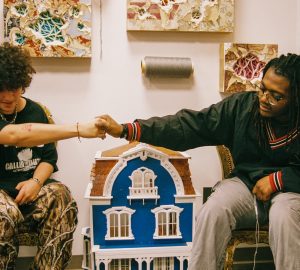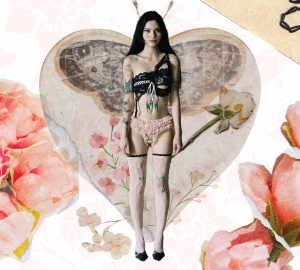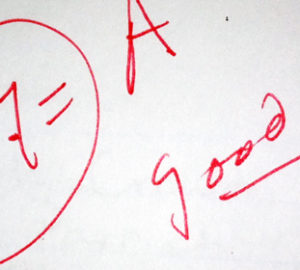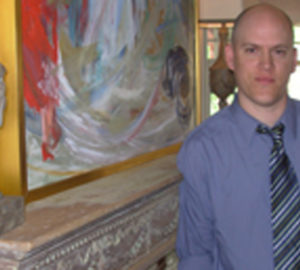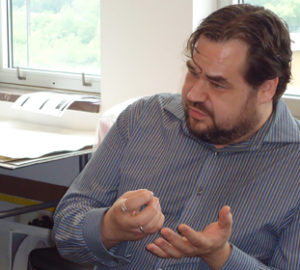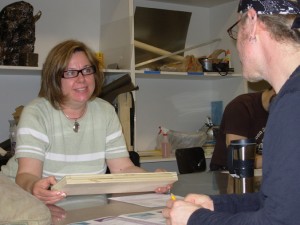
Professor Susan Krause, chair of the sculpture department, came to SCAD Atlanta from Savannah in 2006. She said the move was a great opportunity to create a sculpture program where students could receive one-on-one attention from quality professors and grow within the SCAD creative family.
“I was fortunate enough to start as chair in 2007 and build the sculpture major from scratch, which has absolutely been a professional dream,” said Krause. “We decided to do things a little differently. Since we had a fabulous curriculum already written, I wanted to address some of the things that most of us who had gone to graduate school or were in a sculpture program [wanted to change]. What was it that we didn’t get that we could facilitate at SCAD?”
Krause was born in Toronto, Canada, where she received an Associate of the Ontario College of Art degree (A.O.C.A) from the Ontario College of Art and Design, the Emanuel Hahn Sculpture Award and the Art History Award. She also received a bachelor’s degree in sculpture from the University of Guelph in Ontario and an M.F.A. from Yale University on full scholarship.
“What do students need out of the facility? Well, not a whole lot, but in terms of teaching — mentoring and making what I would consider 21st century contenders in the fine arts,” said Krause. “We decided that we were going to empower students as much as possible to be the very best.”
Krause said that there are other programs that focus on breaking students down and then building them back up, especially on the graduate level. But she’s found through her experiences teaching that students who are determined to succeed will torture themselves. She said that students should feel very challenged, and even perhaps experience a creative block. However, if a student reaches out to one of the faculty, they will receive the assistance that they need.
According to Krause, when a student says they don’t know what to do, a professor’s response is to help. “We assist the students to help them figure out how to problem solve and accept experimentation as a form of being proactive. [We] are there for students, and they can receive immediate feedback.”
Krause related that there are two clubs that students do not want to become a part of: the “good enough” club and the “last minute” club. “I can spot an ‘A’ student from a mile away.”
According to her, receiving an “A” is a simple concept, but by no means effortless. Krause said that “A” students are not part of the “good enough” or “last minute” clubs. They are prepared for class, they put forth their best work every time, they interact with the class material and faculty and they have a positive attitude and continue to grow throughout the quarter.
“We are really committed to our students and the legacy of sculpture. I think that is lacking in a lot of institutions,” said Krause. “But because [the SCAD Atlanta] facility is such a fabulous facility, we’re here all the time.”
Krause shared that internship and job opportunities are readily available. “Because we know each student really well and personally, then when something comes I’m not just canvassing any student that is within my department. I’m going to canvas that to C. J. Miller, who does public art, or I’m going to direct it to Haley Lowe, who works with nature and technology, or I’m going to push it towards a student who does animation,” said Kraus. She suggested that there are strong opportunities to gain experience and build a solid portfolio in the sculpture department.
Krause looks for her students to become internationally relevant through the education they receive in the sculpture department. “When I’m wearing orthopedic sandals, and I’m in my rolly-thing, I want to know that our students have set the bar and continue to make sculpture a really important and viable thing internationally,” said Krause. “And we’re seeing them already do it with a vengeance out of [SCAD Atlanta].”




